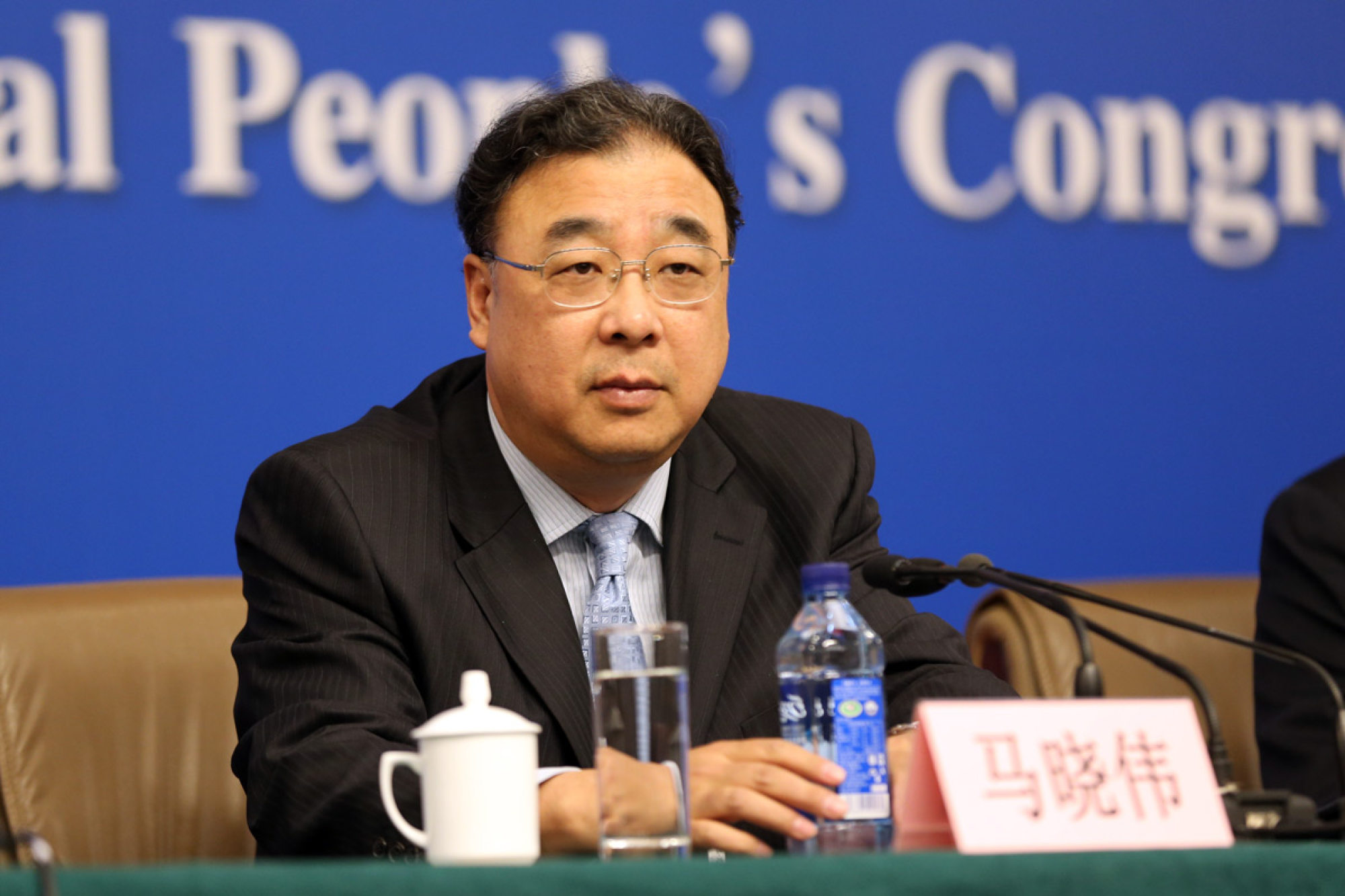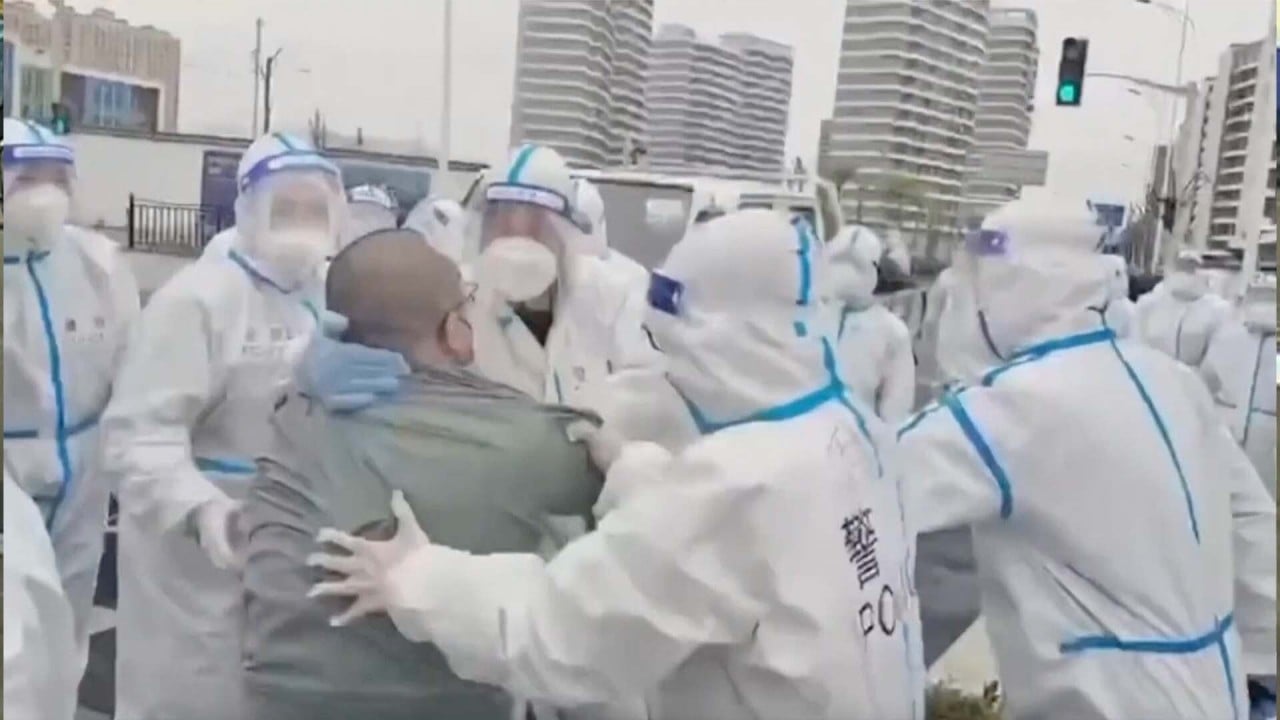
China doubles down on zero-Covid policy ahead of Communist Party congress
- Health Minister Ma Xiaowei tells party journal the bottom line is to prevent outbreaks and consolidate hard-won results
- Any relaxation could trigger an outbreak that could crush the country’s healthcare system, he warns
In a front-page article published on Monday by Study Times, Ma Xiaowei urged the country to stick to the “dynamic zero-Covid” policy and take a clear-cut stand against “erroneous” thoughts of “coexisting with the virus”.
The bottom line was to prevent a large-scale rebound in cases and consolidate the hard-won results of pandemic control to welcome the opening of the five-yearly congress, expected in the second half of the year, he said in the commentary for the Central Party School journal.
Ma’s article comes as domestic concerns have been raised over whether China’s hardline dynamic zero policy is sustainable in the face of more transmissible but milder variants like Omicron.
China’s past efforts in containing dozens of outbreaks – including the more transmissible but milder Omicron variant – have been praised not only in China, but also by the WHO and respected scientific journals like The Lancet and Nature.
The Chinese government considers its handling of the pandemic as a proof of the superiority of its political system and how the party and its leader President Xi Jinping prioritise people and life.
The handling of the pandemic is widely seen as the political legacy of the party and Xi, who is expected to secure a third term at the congress.
But discontent has been mounting in Shanghai, which is largely in lockdown as China grapples with its worst outbreak of the pandemic. Since early March, cases have grown from a few dozen to more than 20,000. About 90 per cent are asymptomatic or mild and so far there have been three reported deaths, all elderly with comorbidities.
Ma said it was wrong to think of Covid-19 as “just like flu” or “we should live with Covid”.
“The big test continues. There must not be the slightest relaxation. Healthcare systems around the country must remain in an emergency state,” he wrote.
“Any relaxation or reduction in requirements, any formalism or bureaucracy, any loopholes the size of a needle will result in an ignition point of the epidemic, which means paying dozens or even hundreds of times the price.”

Ma said China’s huge population, unbalanced development and lack of medical resources meant the health system could be crushed, which in turn would seriously threaten the health of people with underlying diseases, the elderly, children and pregnant women.
“The stable economy and social development would be seriously impacted. The people will not agree, and the party and government will never allow this to happen.”
Ma said the virus was continuing to mutate and the pandemic trajectory was still uncertain. “We are far from being able to breathe a sigh of relief and take a break.”
He pledged “the strictest, most thorough, most resolute and decisive” measures in the face of the rapidly spreading Omicron – detection, contact tracing and isolation of high-risk people as early as possible to stop the spread in the community.
Ma said the country should coordinate its moves like a chess game, to keep optimising prevention and control measures to achieve “zero society Covid”, a newly-coined term for the goal of confining all infections to those in quarantine or a controlled population.
In an upgraded response to Omicron, Ma said, rapid antigen tests must be used on top of the surveillance of fever clinics and key groups at higher risk of infection.
He also urged cities to improve makeshift hospitals and isolation facilities, and to promote building of accommodation for those at high risk, to make sure resources are available quickly if there is an outbreak.
“The Omicron mutant strain is highly contagious and can produce a large number of infected people in a short period of time, triggering a rapid increase in the demand for resources for epidemic prevention and control,” Ma wrote.
“The lack of isolation facilities is the most prominent problem. It is impossible to talk about an effective response to the Omicron epidemic without solving the problem of isolation, or the healthcare system providing continuous and stable daily medical services for the public without isolating the asymptomatic mildly-ill patients in makeshift hospitals.”


